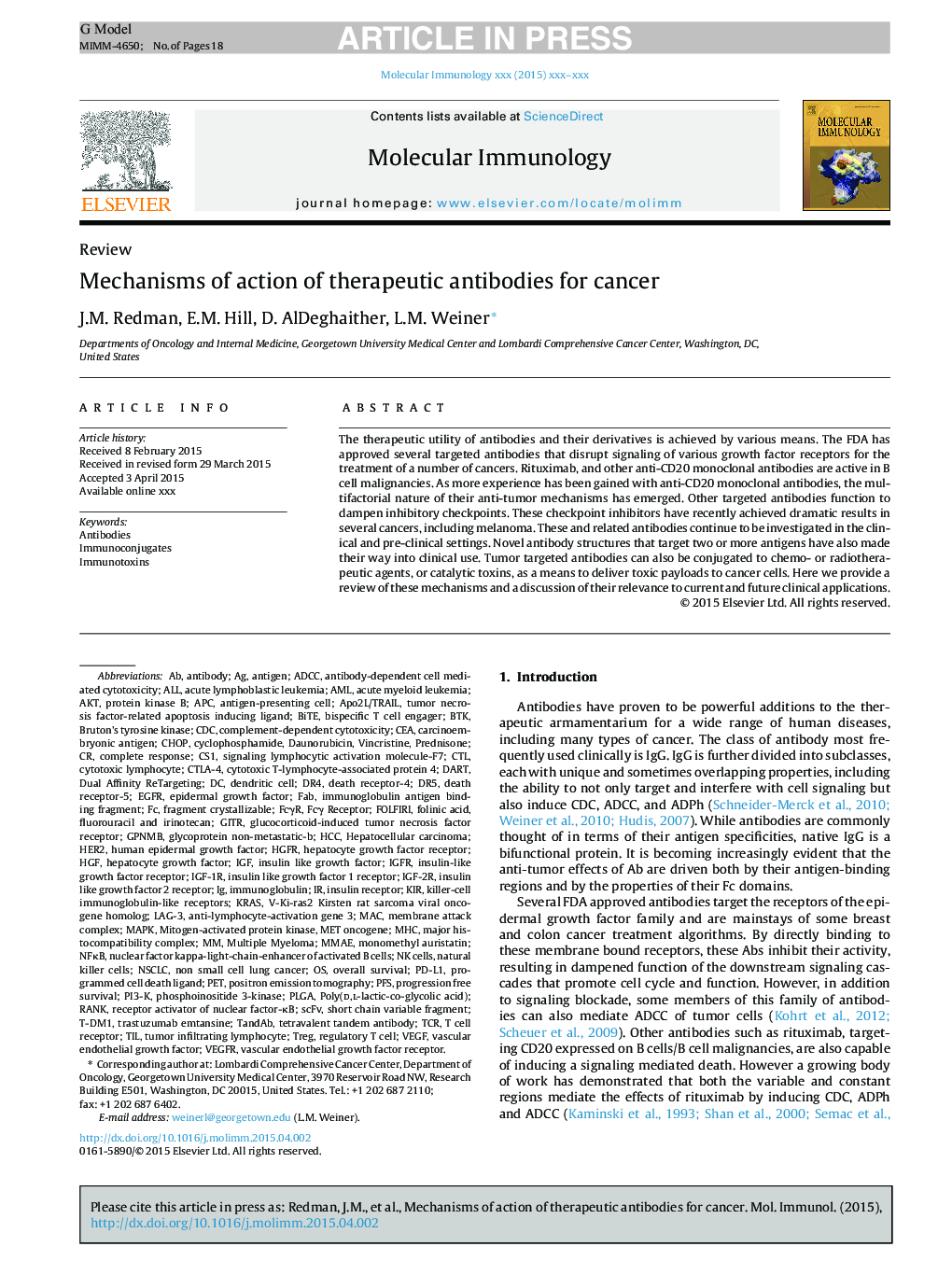| Article ID | Journal | Published Year | Pages | File Type |
|---|---|---|---|---|
| 5916550 | Molecular Immunology | 2015 | 18 Pages |
Abstract
The therapeutic utility of antibodies and their derivatives is achieved by various means. The FDA has approved several targeted antibodies that disrupt signaling of various growth factor receptors for the treatment of a number of cancers. Rituximab, and other anti-CD20 monoclonal antibodies are active in B cell malignancies. As more experience has been gained with anti-CD20 monoclonal antibodies, the multifactorial nature of their anti-tumor mechanisms has emerged. Other targeted antibodies function to dampen inhibitory checkpoints. These checkpoint inhibitors have recently achieved dramatic results in several cancers, including melanoma. These and related antibodies continue to be investigated in the clinical and pre-clinical settings. Novel antibody structures that target two or more antigens have also made their way into clinical use. Tumor targeted antibodies can also be conjugated to chemo- or radiotherapeutic agents, or catalytic toxins, as a means to deliver toxic payloads to cancer cells. Here we provide a review of these mechanisms and a discussion of their relevance to current and future clinical applications.
Keywords
EGFRPLGAADCCHER2IGFCTLPD-L1KRASCDCscFvTCrDArTAPCPI3-KKirIGF-1RTregHGFT-DM1VEGFRFcγRDR4DR5GITRreceptor activator of nuclear factor-κBFOLFIRICS1GPNMBMMAELAG-3Apo2L/TRAILIGF-2RDeath receptor-4HGFRAMLCTLA-4V-Ki-ras2 Kirsten rat sarcoma viral oncogene homologBtkCeAHCCiGFRMAPKNFκBPFsantibodiescarcinoembryonic antigenantigen-presenting cellAktinsulin like growth factorInsulin like growth factor 1 receptorImmunotoxinsimmunoconjugatesimmunoglobulin Progression free survivaloverall survivalTILTrastuzumab emtansineTumor infiltrating lymphocytePositron emission tomographyCHOPBruton's tyrosine kinaseRankNon small cell lung cancerNSCLCRegulatory T cellDendritic cellNK cellsNatural killer cellscomplement-dependent cytotoxicityepidermal growth factorHuman epidermal growth factorHepatocyte growth factorFabVascular endothelial growth factorVascular Endothelial Growth Factor (VEGF)nuclear factor kappa-light-chain-enhancer of activated B cellsphosphoinositide 3-kinasefragment crystallizablecytotoxic lymphocyteacute myeloid leukemiaAcute lymphoblastic leukemiatumor necrosis factor-related apoptosis inducing ligandMHCmajor histocompatibility complexMultiple myelomaMACBiteALLAntibodyAntigencomplete responsePETcytotoxic T-lymphocyte-associated protein 4protein kinase BPoly(d,l-lactic-co-glycolic acid)membrane attack complexHepatocellular carcinomaFcγ receptorinsulin receptorT cell receptorhepatocyte growth factor receptorvascular endothelial growth factor receptorInsulin-like growth factor receptorGlucocorticoid-induced tumor necrosis factor receptordeath receptor-5Killer-cell immunoglobulin-like receptors
Related Topics
Life Sciences
Biochemistry, Genetics and Molecular Biology
Molecular Biology
Authors
J.M. Redman, E.M. Hill, D. AlDeghaither, L.M. Weiner,
